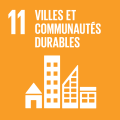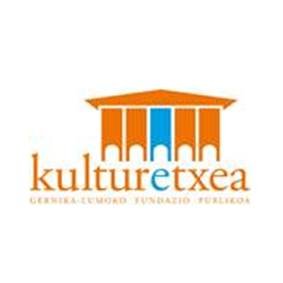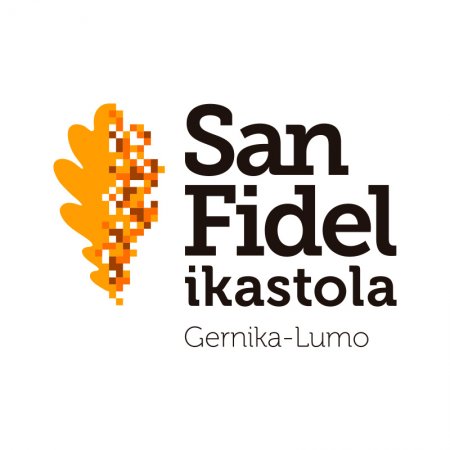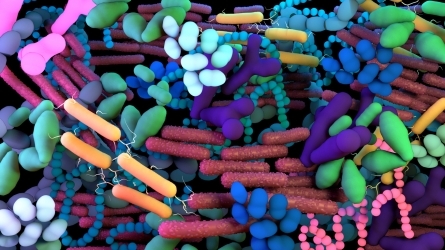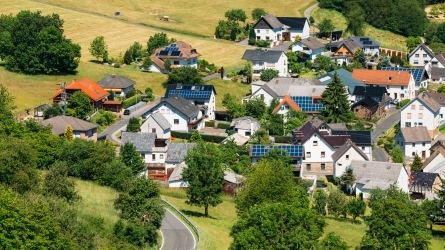
International Summer Course on Energy Communities: Empowerment through Sustainable Energy
Description
The main objective of this course is to provide participants with a deep understanding of energy communities as an innovative model for sustainable energy generation and management. At the end of the course, participants will be trained to lead energy community initiatives, implementing practical and sustainable solutions in their own environments.
- They will understand the key concepts of energy communities, including their definition, structure and operation.
- They will learn the best practices and success stories in the implementation of energy communities in different parts of the world.
- They will learn about the living labs and their fundamental role in energy innovation, as well as specific examples of living labs and the results obtained.
- They will explore the importance of energy socialization and its impact on the community, including tools and approaches to encourage citizen participation in the energy transition.
- They will be able to apply the knowledge acquired in their own projects related to energy communities.
Objectifs
- Comprehensive Understanding: You will gain a deep understanding of the fundamental principles and benefits of energy communities.
- Practical Skills: You will acquire practical skills to design, implement and manage energy community projects.
- Meaningful Connections: You will establish connections with experts and professionals from around the world, fostering collaboration and the continuous exchange of knowledge.
Activité s'adressant à
- Public en général
- Étudiants universitaires
- Professionnels
Directeurs
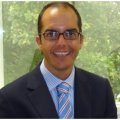
Jokin Garatea Gerrikagoitia
GAIA
Jokin Garatea, director del departamento Internacional de Gaia, Asociación Cluster TEIC del País Vasco. Es Licenciado en Derecho por la Universidad de Deusto y Diplomado en Economía Comunitaria por el Instituto Hispano-Alemán. Especialista en Comercio Exterior por el Departamento de Economía Aplicada de la Universidad del País Vasco en colaboración con el Gobierno Vasco. Coordinador de Proyectos del Fondo Vasco Aquitano para proyectos de fomento de I+DT de PYMEs del sector electrónico, cofinanciado por el Gobierno Vasco. Es miembro del Consejo Asesor del EnoLL (Red Europea de LL) y vice presidente del Ocean LL Transfronterizo desde junio de este año.
Conférenciers

Alba Arias Royo
UPV/EHU
Dr. Elma Durmisevic, EU UIA expert on circular buildings, founding director of EU Laboratory for Green Transformable Buildings in the Netherlands (platform for circular buildings), president of Green Design Centre for South East Europe and design director of 4D Architects in Amsterdam. During 22 years of research within various EU projects and development of reversible buildings and systems, Durmisevic developed tools for measuring circularity of buildings and materials such as: Reversible BIM module, Reuse Potential tool, Transformation Capacity Tool as well as design guidelines and protocol for reversible building design, of which many are integrated into EU guidelines for design of circular buildings. Elma Durmisevic leads development of EU Digital Deconstruction Platform as a part of EU Digital Deconstruction project and was a research leader of EU Buildings as Material Banks project. She holds a PhD at Delft University of Technology on Transformable Building Structures. As Associate Professor at the University of Twente, Durmisevic developed a master program for reversible building design.

Irene Bertolami Bertolami

Pablo de Agustin Camacho
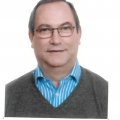
Ignacio De la Puerta Rueda
Eusko Jaurlaritza / Gobierno Vasco
Master en Arquitectura por la Escuela de Arquitectura de Madrid en la especialidad de Edificación (1983), es diplomado en Derecho Urbanístico, especialista en Edificación, Rehabilitación y Urbanismo sostenible y Mediador Civil y Mercantil, con amplia experiencia en la planificación estratégica, planificación urbana y procesos de calidad. Desde el año 1983 ha desempeñado la Dirección del Estudio IP Arquitectos, en el que se han desarrollado tanto Proyectos y Dirección de obras de Edificación y Rehabilitación, como de Planeamiento, actividad que ha mantenido hasta su reciente nombramiento (enero 2017) como Director de Planificación Territorial, Urbanismo y Regeneración Urbana del Gobierno Vasco. En los últimos años ha formado parte del Grupo de Trabajo de Rehabilitación GTR, en el que ha coordinado el grupo de trabajo con las comunidades autónomas, siendo coautor con Albert Cuchí.

Martina DI GALLO
Planet Idea

Paula Ferrando

Jokin Garatea Gerrikagoitia
GAIA
Jokin Garatea, director del departamento Internacional de Gaia, Asociación Cluster TEIC del País Vasco. Es Licenciado en Derecho por la Universidad de Deusto y Diplomado en Economía Comunitaria por el Instituto Hispano-Alemán. Especialista en Comercio Exterior por el Departamento de Economía Aplicada de la Universidad del País Vasco en colaboración con el Gobierno Vasco. Coordinador de Proyectos del Fondo Vasco Aquitano para proyectos de fomento de I+DT de PYMEs del sector electrónico, cofinanciado por el Gobierno Vasco. Es miembro del Consejo Asesor del EnoLL (Red Europea de LL) y vice presidente del Ocean LL Transfronterizo desde junio de este año.

Ugaitz Gaztelu

Jose Maria Gorroño

michael heidenreich

Jose Ramón López

Mikel Magunazelaia

Vicky Mosteyrin Perdiguero
Greenovate! Europe

Noelia Ortiz Santiso
Eraikune

Alessandro Rancati

Momir Tabakovic
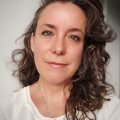
Nagore Urrutia del Campo
EHU

Txari Vallejo
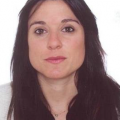
Itziar Vidorreta Vidorreta
ESKILARA
Licenciada en Ciencias Medioambientales por la Universidad Pública del País Vasco y Máster en Ingeniería Medioambiental por la Universidad de Deusto. Actualmente, responsable del área técnica de Eskilara. Desde 2010 y hasta enero de 2015 promotora de proyectos internacionales del Departamento de Proyectos Internacionales. Desde 2010, Promotora de proyectos internacionales en GAIA (Asociación de Industrias de las Tecnologías y del Conocimiento del País Vasco). Áreas: eco-innovación, territorio inteligente, estrategias de especialización territoriales, economía azul, política cluster, economía circular. Funciones: -Coordinación de proyectos europeos, estatales y regionales de I+D+i (H2020, Interreg, Cosme, Erasmus, Hazitek, etc.) -Participación y desarrollo de proyectos europeos como técnica, consultora y coordinadora -Responsable de los proyectos de colaboración transfronteriza

Javier Zuazola
Tarifs inscription
| Matrícula | jusqu'au 04-07-2024 |
|---|---|
| 25,00 EUR |
Lieu de l'événement
Bizkaia
Bizkaia
Objectifs de développement durable
Chez UIK, nous voulons contribuer à la réalisation des objectifs de développement durable (ODD) 2030. Pour ce faire, nous avons identifié les objectifs auxquels nos programmes contribuent. Vous pouvez vérifier les objectifs ci-dessous.
L'Agenda 2030 est le nouvel agenda international de développement adopté en septembre 2015 par les Nations Unies. Cet agenda se veut un outil pour favoriser le développement humain durable sur toute la planète. L'éradication de la pauvreté, la réduction de l'inégalité et de la vulnérabilité et la promotion de la viabilité constituent ses principaux piliers. Il s'agit d'une chance unique de transformer le monde jusqu'en 2030 et de garantir les droits de l'homme à tous.
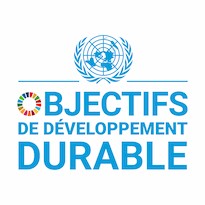
7 - Énergie propre et d'un coût abordable
Garantir l'accès de tous à des services énergétiques fiables, durables et modernes, à un coût abordable. Questions clés : accès universel, hausse de la proportion d'énergies propres, efficacité énergétique, recherche, promotion de l'investissement en infrastructures énergétiques et technologies propres, services énergétiques modernes et durables.
Plus d'informations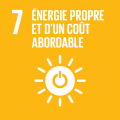
11 - Villes et communautés durables
Faire en sorte que les villes et les établissements humains soient ouverts à tous, sûrs, résilients et durables. Questions clés : accès de tous à un logement et des services de base adéquats et sûrs, à un coût abordable, systèmes de transport accessibles et viables, urbanisation inclusive, planification et gestion participatives, protection du patrimoine culturel et naturel, qualité de l'air, déchets, espaces verts, liens entre zones urbaines, périurbaines et rurales.
Plus d'informations